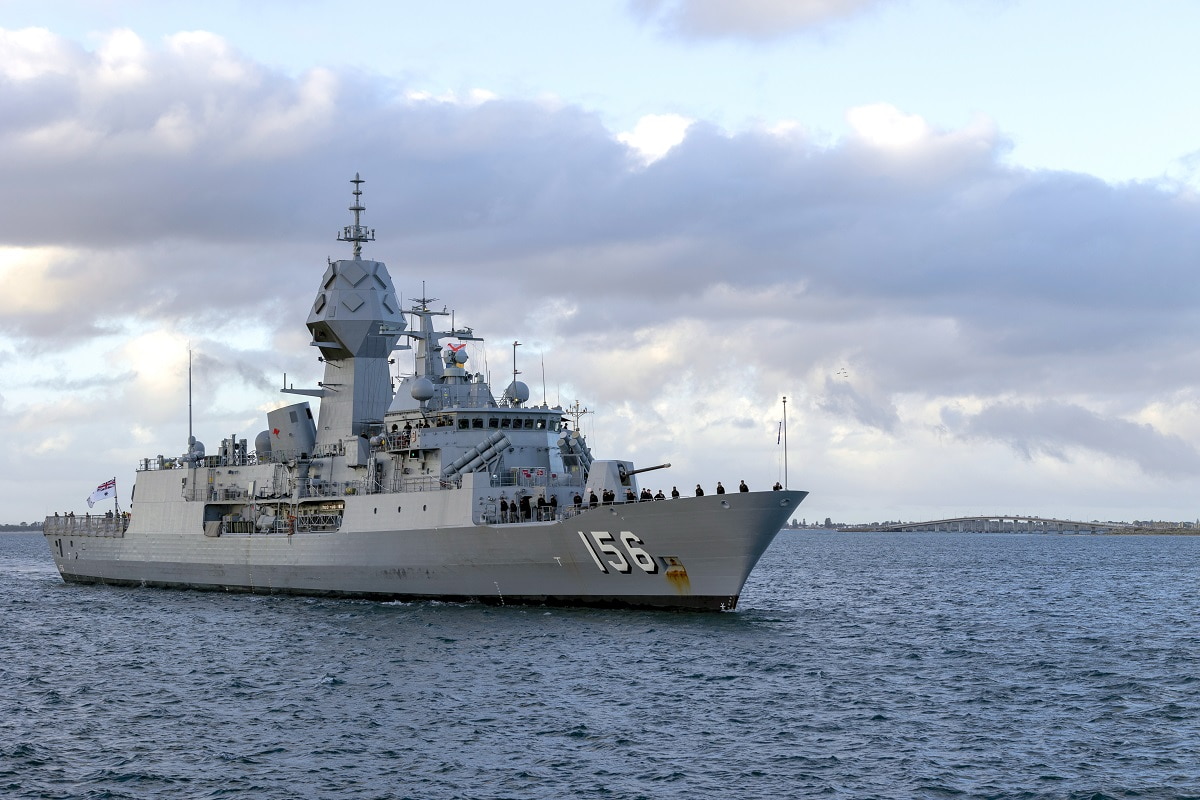There are early signs that a potentially significant change is underway in how Indo-Pacific leaders perceive, describe, and understand the nature of China’s acts in the region. Some Indo-Pacific leaders have started to use the term ICAD – an acronym for illegal, coercive, aggressive and deceptive – to describe actions that would have formerly been called grey zone incidents. In the post-Cold War period, the concept of the grey zone rose in popularity among security scholars and practitioners to describe assorted coercive foreign policy activities that fell between traditional notions of peace and war. Today, however, there is a growing recognition that the term no longer adequately captures the problematic nature of actions by the People’s Republic of China directed against some Indo-Pacific nations.
On 4 May, Admiral Samuel Paparo was appointed as the new US Commander of the Indo-Pacific Command, and used the change-of-leadership ceremony to discuss China’s actions in the South China Sea, submitting that:
Some call it the grey zone. My friend General (Romeo) Brawner from the Republic of the Philippines has a phrase called ICAD and he has renamed grey zone, which sounds otherwise benign and dull, into ICAD which is illegal, coercive, aggressive and deceptive.
Similarly, at a recent military conference, the outgoing Australian Chief of the Defence Force, General Angus Campbell, praised Brawner, saying “We should call it what it is. And General Brawner and his senior colleagues in the Filipino security community describe it as ICAD – illegal, coercive, aggressive and deceptive.” The Filipino president, Ferdinand Marcos Jr, used his opening remarks at the Shangri-La Dialogue in May to underscore that “illegal, coercive, aggressive, and deceptive actions continue to violate our sovereignty, sovereign rights, and jurisdiction”.
Recent incidents show the scope of the problem. On 17 June this year, two Filipino inflatables were making a resupply journey to a small contingent of naval personnel onboard the BRP Sierra Madre wreck – a Philippine Navy tank landing ship effectively run aground to serve as an outpost in the Spratly Islands – when they were intercepted, rammed and boarded by eight PRC speedboats. The PRC attackers were armed with machetes, knives and hammers. Many of the Filipino crew suffered wounds when defending themselves. Manila promptly labelled the incident an “act of piracy” and released video footage of the confrontation.

In addition to the Philippines, other Indo-Pacific nations, including Australia, have found themselves targets of China’s coercive behaviour. On 26 May 2022, a Royal Australian Air Force P-8A Poseidon maritime patrol aircraft was operating in international airspace near South Korea, when a PRC fighter undertook dangerous manoeuvres before firing flares alongside the aircraft, cutting in front, and dispensing chaff. These aluminium fragments are used to confuse the radar of incoming missiles and were later found in the engines by Australian ground crews.
On 14 November 2023, HMAS Toowoomba’s personnel were removing fishing nets caught on the propellers following the frigate’s work in support of UN sanctions enforcement. The vessel was in international waters within Japan’s exclusive economic zone when a PRC warship used its active sonar, leading to the divers sustaining injuries. This was despite the Toowoomba’s multiple warnings that diving operations were underway. On 4 May this year, a Chinese J-10 fighter intercepted an Australian Navy Seahawk helicopter flying from the HMAS Hobart that was policing UN sanctions against North Korea in international waters. The PRC fighter fired flares 60 metres above and 300 metres in front of the helicopter.
A more accurate labelling of PRC behaviour permits sharper thinking about appropriate, proportional, calibrated and coordinated responses.
The shift in terminology from grey zone to ICAD should not be dismissed as mere semantics; it has the potential to significantly change the way Indo-Pacific nations view and respond to the PRC actions that fall within the scope of the new concept. In the past, it was arguable that incidents such as those mentioned above could have been the result of misunderstanding, accident, miscommunication or poor seamanship. “Grey zone” gave China the benefit of the doubt regarding intention or state involvement. ICAD dispels the ambiguity inherent to the term “grey zone”, and does not permit the transgressor to bypass reputational costs.
A more accurate labelling of PRC behaviour permits sharper thinking about appropriate, proportional, calibrated and coordinated responses. If an action is deemed illegal, then it can trigger the use of appropriate multilateral legal measures. If an act is deemed coercive or aggressive, then it can trigger alliance and security partnership agreements. If it is deemed deceptive, then it requires the international community to investigate. In short, the mere existence of the term can shape narratives to deter future transgressions. Regional responses to coercive acts become more likely and, potentially, more costly to the perpetrator.
Beijing seems to be worried about the new ICAD term and narrative that is gaining popularity in the Philippines and beyond. The Global Times, a PRC government mouthpiece, has already attempted to seize back the narrative with an opinion piece titled “Who is ‘illegal, coercive, aggressive, deceptive’ in the South China Sea?” .
Ultimately, Angus Campbell is right. It’s time to “call it what it is” and replace the grey zone with ICAD.

